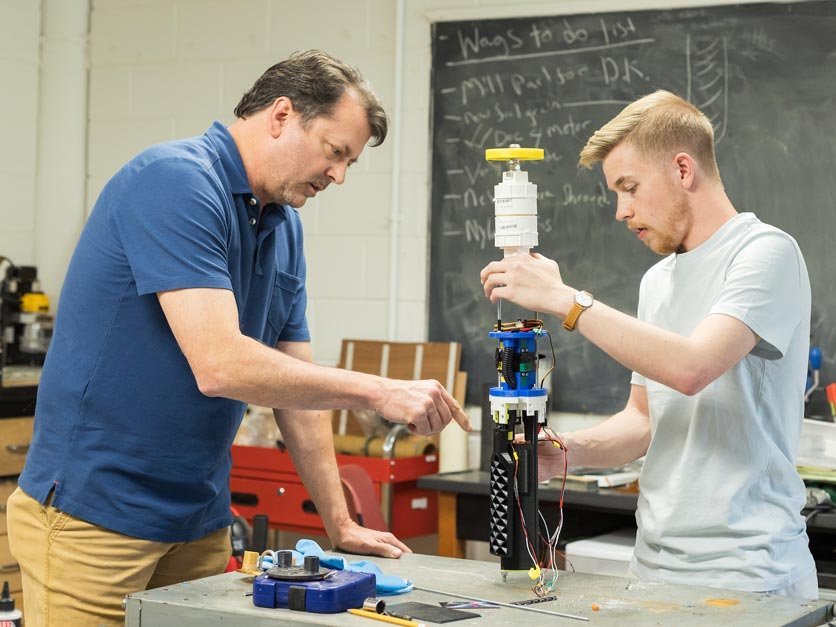LR Rocket Team to compete in Spaceport America Cup
The Lenoir-Rhyne University Rocket Team has been selected as one of 150 teams from across the globe to compete in the 2020 Spaceport America Cup from June 16-20, in Las Cruces, New Mexico.
International teams from as far away as Russia, Brazil, Pakistan, Denmark, Norway, Poland, Canada, the United Kingdom, Australia, Switzerland, India, and Turkey are also competing. It is billed as the largest intercollegiate rocket engineering conference and competition in the world and one of the two most prestigious competitions for a collegiate rocket team, along with the NASA University Student Launch Initiative.

The LR Rocket team was selected as 1 of 150 teams across the globe to compete in the 2020 Spaceport America Cup in Las Cruces, New Mexico against teams from Russia, Brazil, Pakistan, Denmark, Norway, Poland, Switzer
LR's team competed in the latter the last two years and is heading to the former this year in the program's third year of competition.
"The last two years, we were the smallest school by undergraduate enrollment," said Dr. Doug Knight, an assistant physics professor at LR who oversees the program. "This year, we're also the smallest school in our division."
But LR has still progressed to finish in the top half each year. The team received a partial grant from North Carolina Space Grant to help offset some of the cost of participating and traveling to the competition.
As LR's rocketry mentor for several years, Knight, a 1998 LR graduate, finds his role as mentor to be rewarding for both the students and himself.
"Coming from my background, I've worked for a couple startups—one in optics and one in defense—and I want to run it (rocket club) like a small company," Knight said. "The students are part of the design process. It's their rocket and their design. They have ownership."
"I want them to be heavily involved and make mistakes here, so when they graduate and get jobs, they don't make them out there."
The club meets each Friday with members of the 18-person team dividing responsibilities per their experience and area of specialty.
"We open it up for freshmen, sophomores, juniors, and seniors," Knight said. "We give them appropriate work and responsibility for their level. Freshmen are kind of like technicians. Sophomores and juniors are more like my engineers, and seniors tend to be project leads. They take on added responsibility."
Rocket club is an extracurricular activity for students who learn how to fabricate different components, conceive a project design, manage deadlines and progress through multiple phases of testing and flight. They'll also gain real-world experience flying rockets in front of some of the industry's premiere employers such as Blue Origin and Virgin Galactic.
"I try to put them in front of possible employers and give them the best opportunity to get a job after they leave here," Knight said. "I can't guarantee it, but I try to give them a chance. These skills are cross disciplinary. They can be applied to so many different fields."

Lenoir-Rhyne reports its largest application total in university history, reflecting growing interest in its academic experience and commitment to affordability.
View More
Five faculty members step into new assistant dean roles to strengthen student support, enhance academic programs, and provide more agile leadership across Lenoir-Rhyne’s colleges.
View More